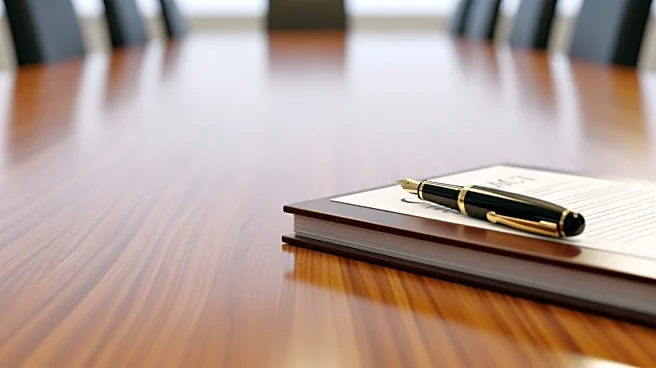Rapid Read • 8 min read
Tesla and CEO Elon Musk are facing a proposed class action lawsuit accusing them of securities fraud related to the company's Robotaxi program. The lawsuit, filed by shareholder Denise Morand in Austin federal court, claims Tesla downplayed safety risks associated with its autonomous taxis, which were publicly tested in late June. These tests reportedly showed vehicles speeding, abrupt braking, and lane violations, leading to a 6.1% drop in Tesla's share price, erasing approximately $68 billion in market capitalization. The plaintiffs argue that Musk and Tesla overstated the readiness and safety of their self-driving technology, inflating financial forecasts and stock valuation. The lawsuit names CFO Vaibhav Taneja and former CFO Zachary Kirkhorn as co-defendants, highlighting management's role in guiding investor expectations.
AD
The lawsuit amplifies scrutiny on Tesla's self-driving claims amid ongoing regulatory reviews. If successful, it could impact investor confidence in Tesla's Robotaxi revenue projections, which are crucial for the company's valuation. The legal challenge also underscores the broader industry risks associated with autonomous vehicle technology, potentially affecting regulatory approaches and consumer trust. For Tesla, the outcome could either reinforce its commitment to safety and transparency or lead to significant financial and reputational setbacks. The case highlights the tension between rapid innovation and the need for rigorous safety standards in the autonomous vehicle sector.
Preliminary motions and discovery will test the strength of the fraud claims, with potential regulatory investigations compounding legal and operational risks for Tesla. The lawsuit's focus on disclosures and projections may clarify for investors what milestones are realistically achievable, potentially resetting the stock's valuation on tangible fundamentals. If Tesla prevails or settles with limited impact, it could restore investor confidence and reduce litigation overhang, especially if key product and safety milestones are achieved during the process.
The lawsuit arrives as Tesla faces waning demand for its aging EV lineup and intensifying regulatory scrutiny over autonomous driving. A recent Florida jury assigned Tesla liability in a fatal driverless-car crash, ordering $243 million in damages. The case raises fresh doubts about the timeline for a profitable Robotaxi rollout and the challenge of securing public and regulatory trust.
AD
More Stories You Might Enjoy











